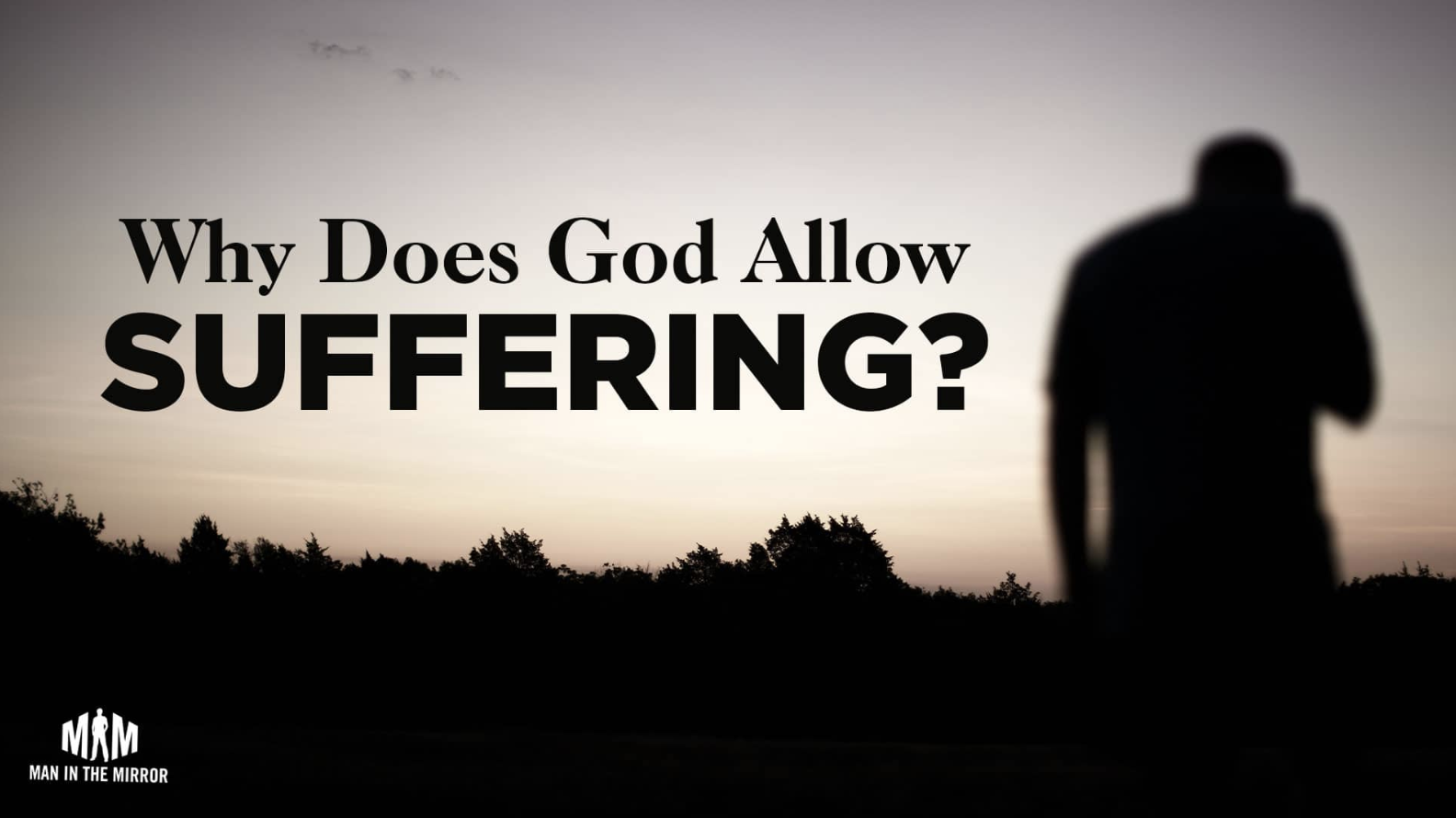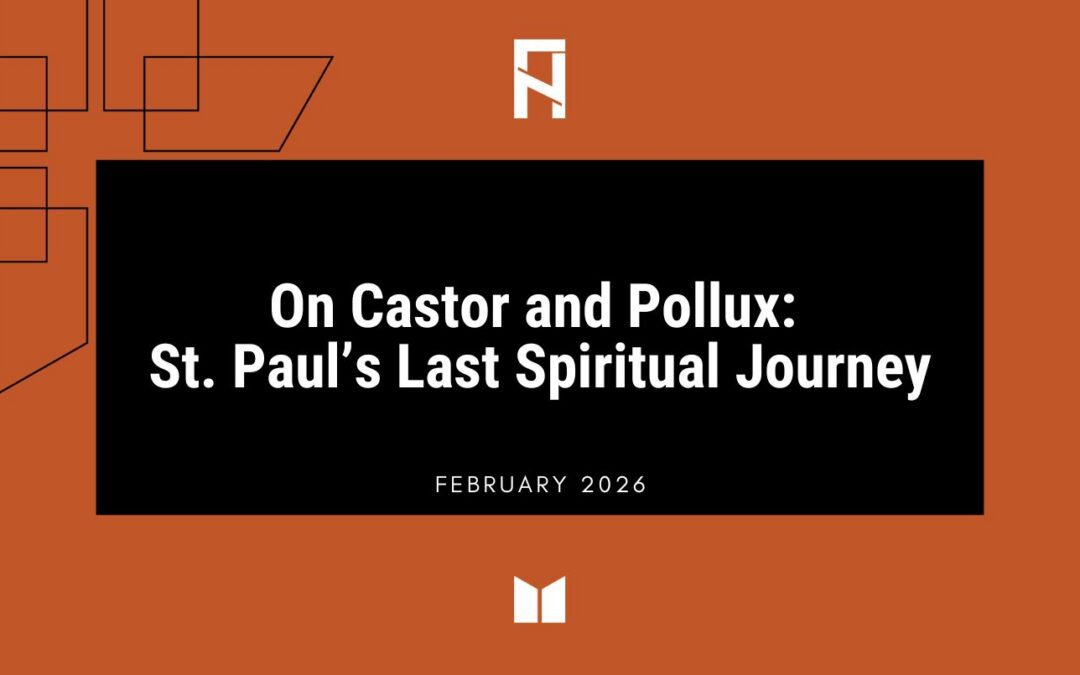Bill ran his business in the good times as though good times would never end. When the recession hit, he had a mountain of debt and no reserves.
As he sat across the breakfast table from me, he explained that he could see no way out. His first and second homes were both mortgaged to the hilt. He and his wife had been fighting constantly. He told me he had $1,000,000 in life insurance.
Then he said with a chilling detachment, “I’ve decided that the best thing for everybody would be for me to commit suicide.”
How had it come to this?
C.S. Lewis wrote in The Problem of Pain:
If God where good, He would wish to make His creatures perfectly happy, and if God were almighty, He would be able to do what He wished. But the creatures are not happy. Therefore, God lacks either goodness, or power, or both. This is the problem of pain in its simplest form.
Pain has the power to send our theology into a tailspin. Of the many questions raised by suffering, these four represent most of the Christian’s struggle:
- Does God care? (the issue of his benevolence and love)
- Does He know what’s happening? (the issue of his omniscience)
- Can He do anything about it? (the issue of his omnipotence)
- If He cares, knows, and can do something about it, why doesn’t He? (the issue of his purposes and will)
The Reason for Suffering
We’ve all heard it—or asked it—before: Why do bad things happen to good people?
There are a few “why”s—or origins—of suffering that we can recognize, even if we don’t always fully understand. For example, consider these men from the Bible:
- Joseph was unjustly sold as a slave and imprisoned for a crime he didn’t commit. He suffered as a result of others’ sin.
- David, a man after God’s own heart, sinned deeply and was punished severely. He suffered because of his own sin.
- Jeremiah was arrested and put in stocks for speaking God’s word. He suffered for doing right.
- A man was born blind “so that the work of God might be displayed in his life” (John 9:3). His suffering was an opportunity to display God’s glory.
But what about when you or someone you love is suffering for no (discernible) reason at all?
A man deep in debt learns his binge spending is linked to the bipolar disorder with which he must learn to cope. A wife gets Alzheimer’s disease. A sudden mudslide destroys a small village. A young couple rejoices that they are going to have a child, only to miscarry weeks later.
For most of us, we can accept the suffering that is our own fault. And a lot of suffering is of our own making—we do something wrong, we make an error in judgment, we sin. But a lot of suffering seems random, meaningless, and undeserved.
The suffering of Job comes to mind (read more about this in How God Makes Men). Even after Job was restored, he still never found out why he’d suffered so tremendously.
Because we have the Bible, we do know how it came about. The book of Job says Satan taunted God by claiming that Job would curse God if his blessings were taken away. And so God gave Satan permission to test Job with great suffering.
But the reason why God allowed Satan to test Job so severely still remains hidden behind the veil of God’s inscrutable will. “The secret things belong to the LORD our God, but the things revealed belong to us and to our children forever” (Deuteronomy 29:29a).
There is no formula for pain. And there is no formula to explain pain.
Men, let’s be careful not to give formulaic answers for others’ pain. I’m tempted all the time to attach reasons to people’s sufferings. But except for when it’s clear that we’re suffering for doing right or wrong, we just don’t know.
What we do know is this: suffering is a part of God’s plan of redemption.
Embracing Suffering
We’d be fools to seek out suffering, but we also don’t need to shrink from it. Why?
As I look back, almost all the spiritual progress in my life took place after God refined by fire something I could or would never have dealt with on my own.
For example, early in my business career, success went to my head. The hubris threatened my soul, but I was helpless to do anything about it in my own strength. I wanted to, but I lacked the power. So God orchestrated a seven-year-long crisis to get my attention.
The pain was excruciating, and I tried everything humanly possible to make it go away. But that was not to be. God loved me too much to let me continue on the path to destroying myself spiritually.
Suffering is a part of God’s plan of redemption.
I was like a three-year-old child at the beach who wanted to play in the glistening surf. When his father wasn’t looking, he bolted across the sand toward the enticing waves.
But what attracts can also destroy. When his father saw his son darting toward the powerful, pounding waves, he ran swiftly across the sand. He scooped up his three-year-old son just as a tall breaker was about to come crashing down on him.
What did the child do? Did he look adoringly into the eyes of his father and say, “Oh father, thank you for sparing me from certain destruction!” Of course not. He threw a temper tantrum. Why? He thought his father was making him suffer.
Likewise, God saved me from destroying myself, but at the time I was disappointed that I was being spared. Sometimes what we think is suffering is a gift.
You see, suffering compels us to seek the God that success makes us think we don’t need.
This is why we are instructed to consider it joy when we face hardship:
Consider it pure joy, my brothers and sisters, whenever you face trials of many kinds, because you know that the testing of your faith produces perseverance. Let perseverance finish its work so that you may be mature and complete, not lacking anything. (James 1:2-4)
The Grace of Affliction
So much about suffering remains opaque and impenetrable. As biblical Christians, when we don’t understand something, we should admit it. But at the same time, there is a lot we can know about suffering, based on the scriptures.
Jesus told the disciples, “In this world you will have trouble” (John 16:33). Because the world is fallen, we must do our work while feeling the prick of thorns. We all will suffer.
But as it is, suffering plays a large part in the Christian faith on the road to redemption. Paul and Barnabus told the disciples, “We must go through many hardships to enter the kingdom of God” (Acts 14:22b).
The truth is we are called to suffer: “For it has been granted to you on behalf of Christ not only to believe in him, but also to suffer for him” (Philippians 1:29). Don’t fall into the trap of reducing the good news to a promise of ease and happiness. Any gospel without suffering is a gospel without Christ.
But in God’s grace, there is also purpose to—and therefore a comfort in—our suffering.
We see this clearly throughout scripture. Read slowly through a few of these passages and let your heart absorb them:
Not only so, but we also glory in our sufferings, because we know that suffering produces perseverance; perseverance, character; and character, hope. And hope does not put us to shame, because God’s love has been poured into our hearts through the Holy Spirit, who has been given to us. (Romans 5:3-5)
And the God of all grace, who called you to his eternal glory in Christ, after you have suffered a little while, will himself restore you and make you strong, firm and steadfast. (1 Peter 5:10)
Therefore, in order to keep me from becoming conceited, I was given a thorn in my flesh, a messenger of Satan, to torment me. Three times I pleaded with the Lord to take it away from me. But he said to me, “My grace is sufficient for you, for my power is made perfect in weakness.” Therefore I will boast all the more gladly about my weaknesses, so that Christ’s power may rest on me. That is why, for Christ’s sake, I delight in weaknesses, in insults, in hardships, in persecutions, in difficulties. For when I am weak, then I am strong. (2 Corinthians 12:7b-10)
Some of the wise will stumble, so that they may be refined, purified and made spotless until the time of the end, for it will still come at the appointed time. (Daniel 11:35)
God disciplines us for our good, in order that we may share in his holiness. No discipline seems pleasant at the time, but painful. Later on, however, it produces a harvest of righteousness and peace for those who have been trained by it. (Hebrews 12:10b-11)
It was good for me to be afflicted so that I might learn your decrees. The law from your mouth is more precious to me than thousands of pieces of silver and gold. (Psalm 119:71-72)
In all this you greatly rejoice, though now for a little while you may have had to suffer grief in all kinds of trials. These have come so that the proven genuineness of your faith—of greater worth than gold, which perishes even though refined by fire—may result in praise, glory and honor when Jesus Christ is revealed. (1 Peter 1:6-7)
Therefore, since Christ suffered in his body, arm yourselves also with the same attitude, because whoever suffers in the body is done with sin. As a result, they do not live the rest of their earthly lives for evil human desires, but rather for the will of God. (1 Peter 4:1-2)
Praise be to the God and Father of our Lord Jesus Christ, the Father of compassion and the God of all comfort, who comforts us in all our troubles, so that we can comfort those in any trouble with the comfort we ourselves receive from God. (2 Corinthians 1:3-4)
“But I have prayed for you, Simon, that your faith may not fail. And when you have turned back, strengthen your brothers.” (Luke 22:32)
We do not want you to be uninformed, brothers and sisters, about the troubles we experienced in the province of Asia. We were under great pressure, far beyond our ability to endure, so that we despaired of life itself. Indeed, we felt we had received the sentence of death. But this happened that we might not rely on ourselves but on God, who raises the dead. (2 Corinthians 1:8-9)
Why do I embrace suffering? Why do I see God’s grace in affliction?
Because it produces in me the life of Christ, and I know of no other way to get it. I haven’t been able to get it by self-will. I didn’t get it through prosperity. It hasn’t come to me through learning.
Any gospel without suffering is a gospel without Christ.
The Apostle Paul recognized this connection between participating in the suffering of Christ and becoming more like Him:
I want to know Christ—yes, to know the power of his resurrection and participation in his sufferings, becoming like him in his death, and so, somehow, attaining to the resurrection from the dead. (Philippians 3:10-11)
God allows suffering to produce hope in us, to discipline us, to refine us, to strengthen us, to equip us to comfort others, to teach us to trust Him, to make us like Christ, and more.
THE BIG IDEA: Suffering produces in me the life of Christ, and I know of no other way to get it.
Restoring Hope to Men
My friend Bill didn’t want to end his life. The problem was that Bill had lost hope.
Some of the men you know who are hurting need your presence and comfort far more than they need your theology or advice. Oftentimes, the latter can never console as much as sitting quietly and listening to someone pour out their hearts.
But in Bill’s case, he had lost hope because he didn’t have a plan. He couldn’t see any way forward from what would really turn out to be a season of suffering. I realized he needed my practical help—not just a listening ear.
By the time we were finished with breakfast, Bill had a written plan that he could take to his wife and discuss. The plan was to sell both homes within 90 days and purchase a town home free and clear to give his wife some security. It was not “list” or “try to sell,” but “sell.” So he had to list the properties at a realistic price and begin lowering the asking price every 10 days or so until the properties sold. Also, he would take a job doing whatever he could get to demonstrate to his wife that he was willing to work.
Once he had made his plan, you could see the color of hope quickly return to his face. Then I asked Bill to write one sentence at the end of his plan: “Your sufferings are a precious gift from God.”
A wave of understanding swept over him as the Holy Spirit confirmed the truth of this statement to a very emotional man on the brink.
As we prayed and parted company, Bill said, “I know I’m going to be all right. God is in control.”
Suffering compels us to seek the God that success makes us think we don’t need.
A short time later, Bill began meeting with another man who was going through a season of suffering, helping to restore his hope.
Isn’t God good? Far from a reason to abandon hope, suffering is the precious gift that keeps drawing us back to the unfailing love, grace, and mercy of the Father who adopted us, the Son who died for us, and the Spirit who intercedes for us with groans so deep that words cannot express.
As leaders of hurting men, you will need to pray for discernment to know who needs what from you and when—a listening ear, biblical truth, comfort, or a plan.
But you can prayerfully offer this encouragement to all your men who are in a season of suffering: “Nothing that happens to you by human will can happen apart from God’s will. He has purposes for you that are far greater than your present circumstances. Our sufferings are mere pinpricks compared to what comes next.”
Therefore we do not lose heart. Though outwardly we are wasting away, yet inwardly we are being renewed day by day. For our light and momentary troubles are achieving for us an eternal glory that far outweighs them all. So we fix our eyes not on what is seen, but on what is unseen, since what is seen is temporary, but what is unseen is eternal. (2 Corinthians 4:16-18)
He does know what’s happening, He does care, He can do something about it, and He is.
It turns out God is making us, not breaking us.
Question of the Week
How has God used suffering in your life to produce something good?






